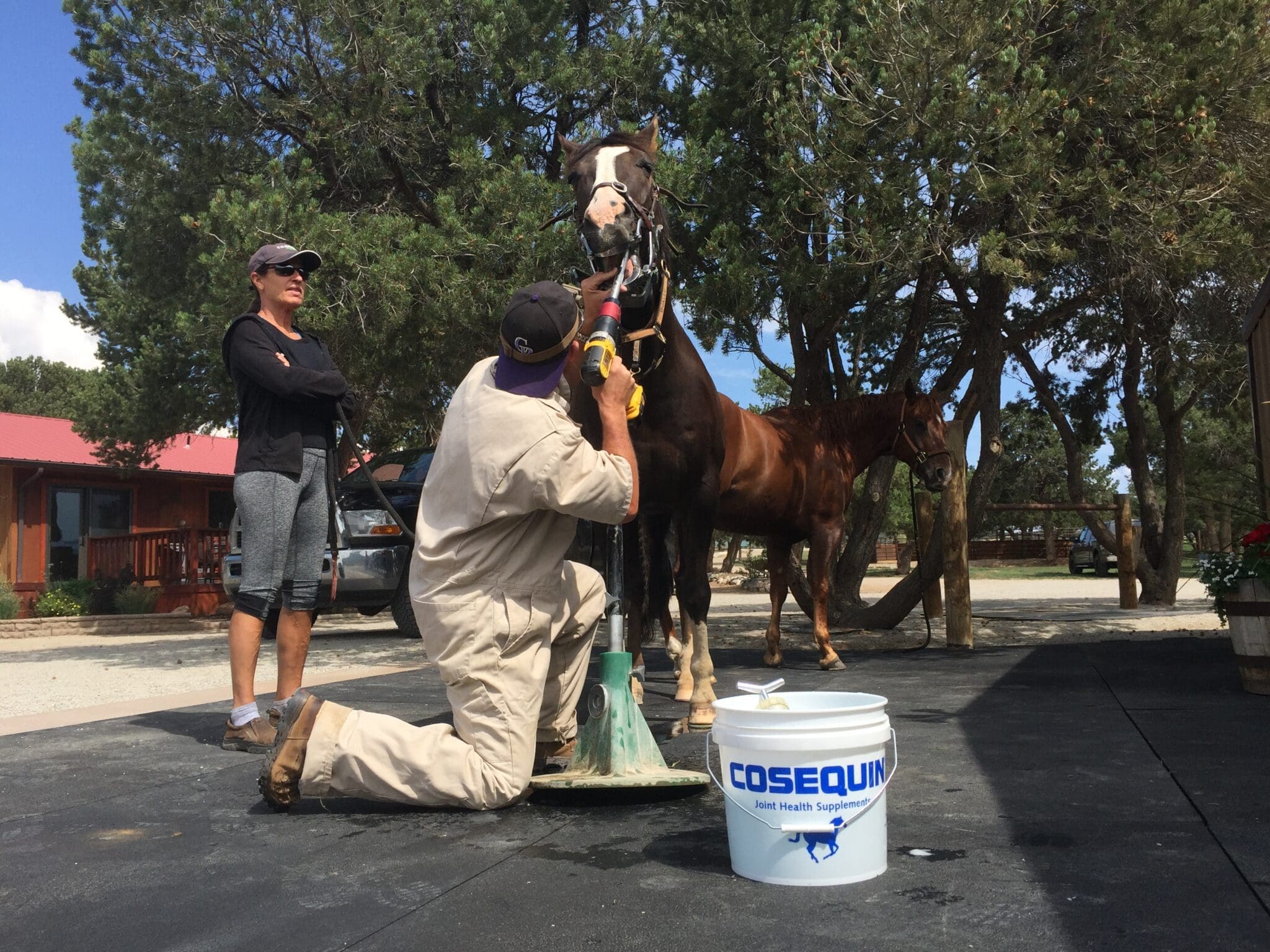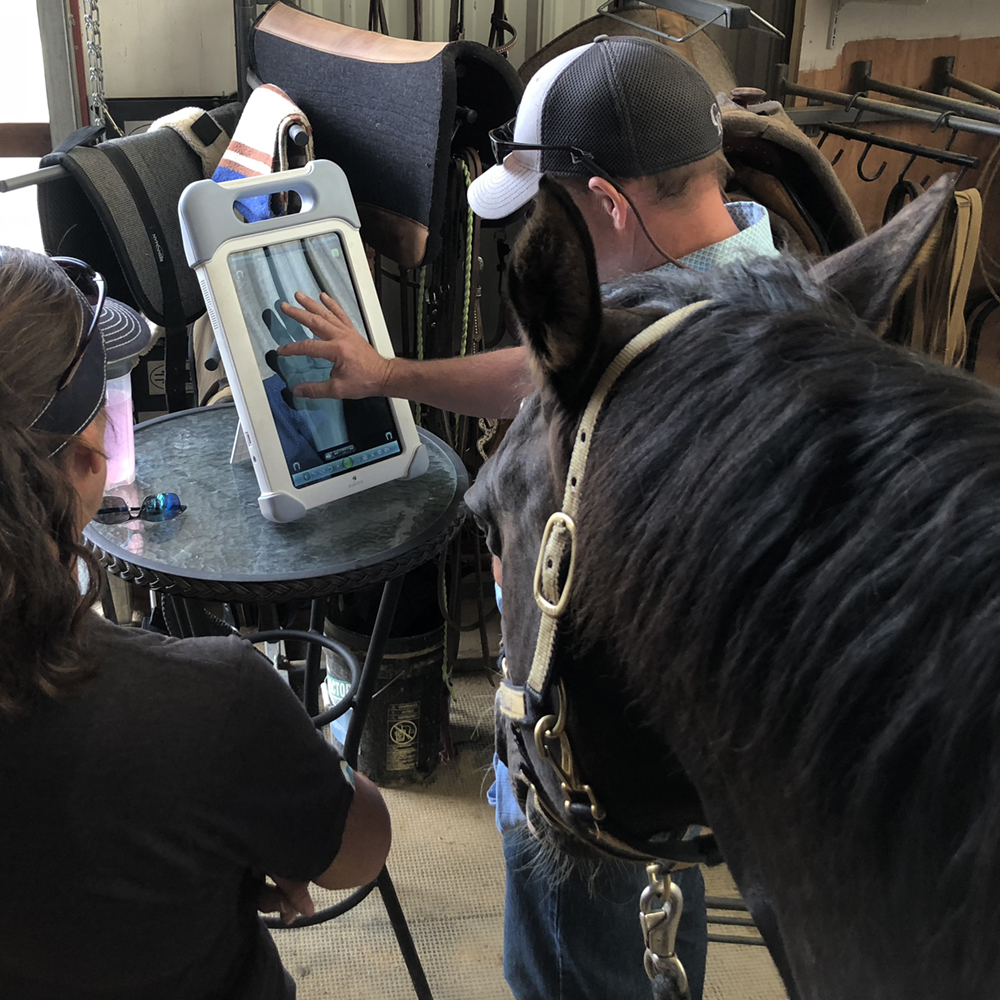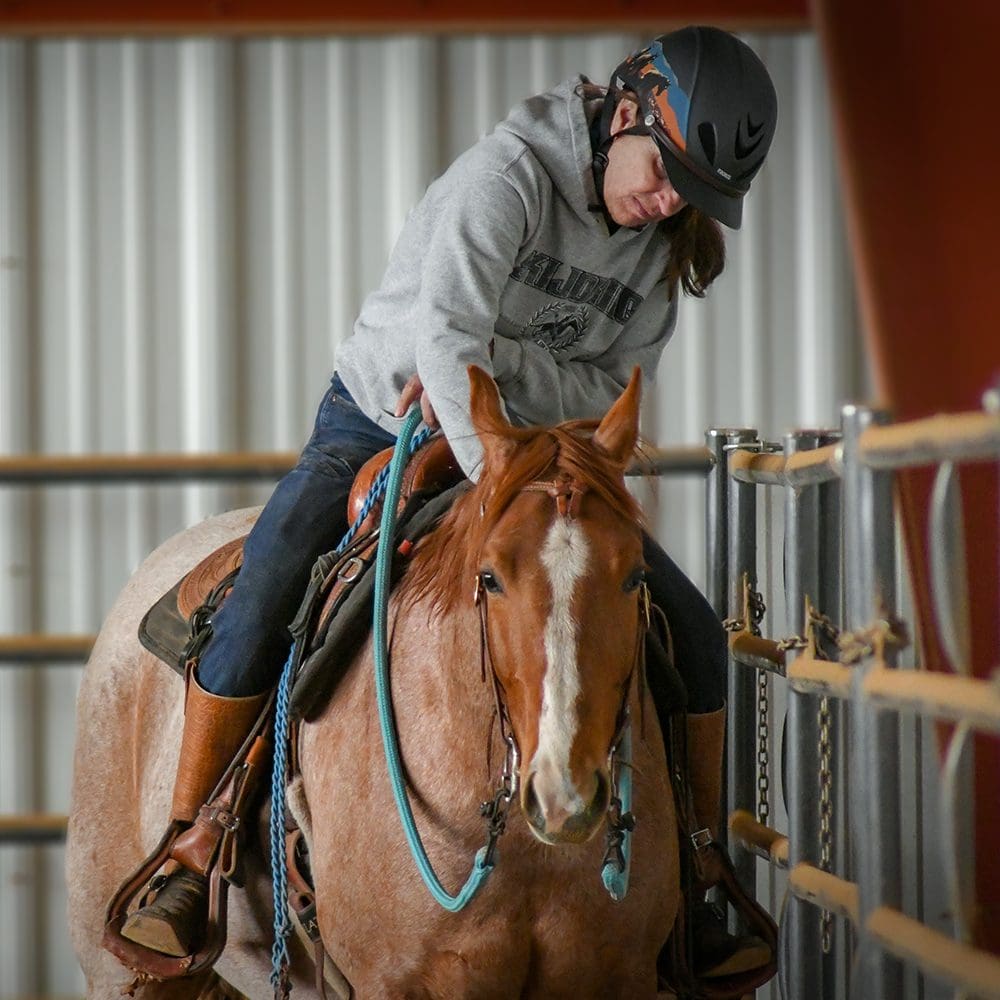It’s been a rough few weeks around our barn, but I am pleased to report a happy ending. My number one horse, Dually, has always been a high-maintenance horse, with digestive issues, performance injuries, tendency toward ulcers—you get the picture. He is also extremely important to me, my most precious horse—and everyone who works for me feels that pressure when I am out of town (Dually, please don’t get sick on my watch!). My husband, Rich, freely admits to our friends his second-place standing in the order.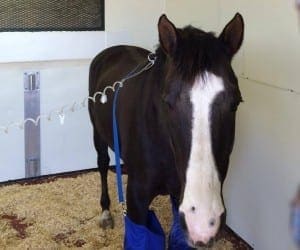
A couple weeks ago, when Dually crashed, I was out of town at an expo. I got several calls and texts on Sunday that Dually had diarrhea, was not eating and was cold and lethargic. The only thing worse than a sick horse is one that gets sick when you are out of town (as is usually the case with Dually). By Monday morning, there was little improvement so once my plane landed in Denver, I mobilized Rich and Melissa to get Dually ready to transport to the closest critical care facility, Littleton Equine Medical Center, a mere 2 1/2 hour drive north, through the mountains.
I headed south while they headed north, and we met along the way so I could jump in the truck with Rich and accompany Dually to the hospital (in my airplane clothes). He was in critical condition, with septic shock, severe dehydration and a compromised circulatory system.
Without medical intervention, he would have died within 48-72 hours—it’s a downward spiral that happens fast and even with intervention cannot always be reversed. He has colitis, which is inflammation/infection in the colon without a known cause (50-70 percent of colitis cases are from unknown causes; known causes include antibiotics or a viral infection like salmonella or clostridium, but Dually had none of those).
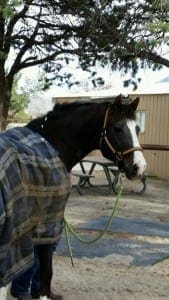 Dually wasn’t colicky but he did have diarrhea. He had a low body temperature (from dehydration and circulatory compromise) and a fast heart rate and was extremely lethargic, anorexic, drinking and urinating excessively. When colitis attacks the lower gut, it basically shuts down the digestive system and the horse is no longer able to absorb any nutrients or water—thus excessive drinking just led to excessive urination and he continued to dehydrate by the minute. This shut down happens very fast.
Dually wasn’t colicky but he did have diarrhea. He had a low body temperature (from dehydration and circulatory compromise) and a fast heart rate and was extremely lethargic, anorexic, drinking and urinating excessively. When colitis attacks the lower gut, it basically shuts down the digestive system and the horse is no longer able to absorb any nutrients or water—thus excessive drinking just led to excessive urination and he continued to dehydrate by the minute. This shut down happens very fast.
Once in the hospital, the immediate treatment was to get him hooked up to an IV and pump massive fluids into him and plus an array of antibiotics to attack the apparent infection and plasma to boost his circulation. While waiting to see how he would respond to these treatments, there was a secondary concern of laminitis due to the high toxicity level in his system. He was put in ice-boots and his digital pulses were monitored throughout the days and nights, but thankfully no signs of laminitis emerged.
Dually was in the hospital with critical care nursing and heavy duty pharmaceuticals and probiotics (translation: very expensive) for four days. It was really hard to leave town on Friday, the day he could come home, but I had a clinic in GA. Thankfully Rich and Lucy were on the spot and while I headed for the airport, they made the journey—knowing it would be a long and anxious ride home, winding through the mountains.
Saturday, Dually was in a very weakened and depressed state. Melissa and Rich watched him like a hawk through the weekend; he wasn’t eating and felt quite puny but they nursed him through it. We’ve been monitoring his vitals closely and administering medications and mega probiotics (Proviable) twice a day. His vital signs are stable, his heart rate still elevated but trending down slowly and his appetite has finally gotten back to normal. His manure is absolutely picture perfect and his attitude is greatly improved, although he’s quite tired of being poked, prodded and having stuff crammed down his throat.
![FullSizeRender[1]](http://signin.juliegoodnight.com/wp-content/uploads/2015/04/FullSizeRender1-300x225.jpg) Now that I am home, I am spending more time with Dually, massaging his sore neck (from injections) and taking him on leisurely strolls around the farm to munch green grass. I imagine it will be a few weeks before he is totally feeling great and may be ready to get back to work. In the meantime, we are grateful that he pulled through, and we are optimistic about his full recovery.
Now that I am home, I am spending more time with Dually, massaging his sore neck (from injections) and taking him on leisurely strolls around the farm to munch green grass. I imagine it will be a few weeks before he is totally feeling great and may be ready to get back to work. In the meantime, we are grateful that he pulled through, and we are optimistic about his full recovery.
Here’s a helpful article to know what to look for, in case you ever have to deal with colitis. Please do make sure you know how to take your horse’s temperature, heart rate and perfusion and be sure to call the vet any time you see a horse with diarrhea–better safe than sorry and better sooner than later! Please read and share this vital sign info–and make sure to post it in your barn so everyone knows how to check vitals and what numbers are good!
